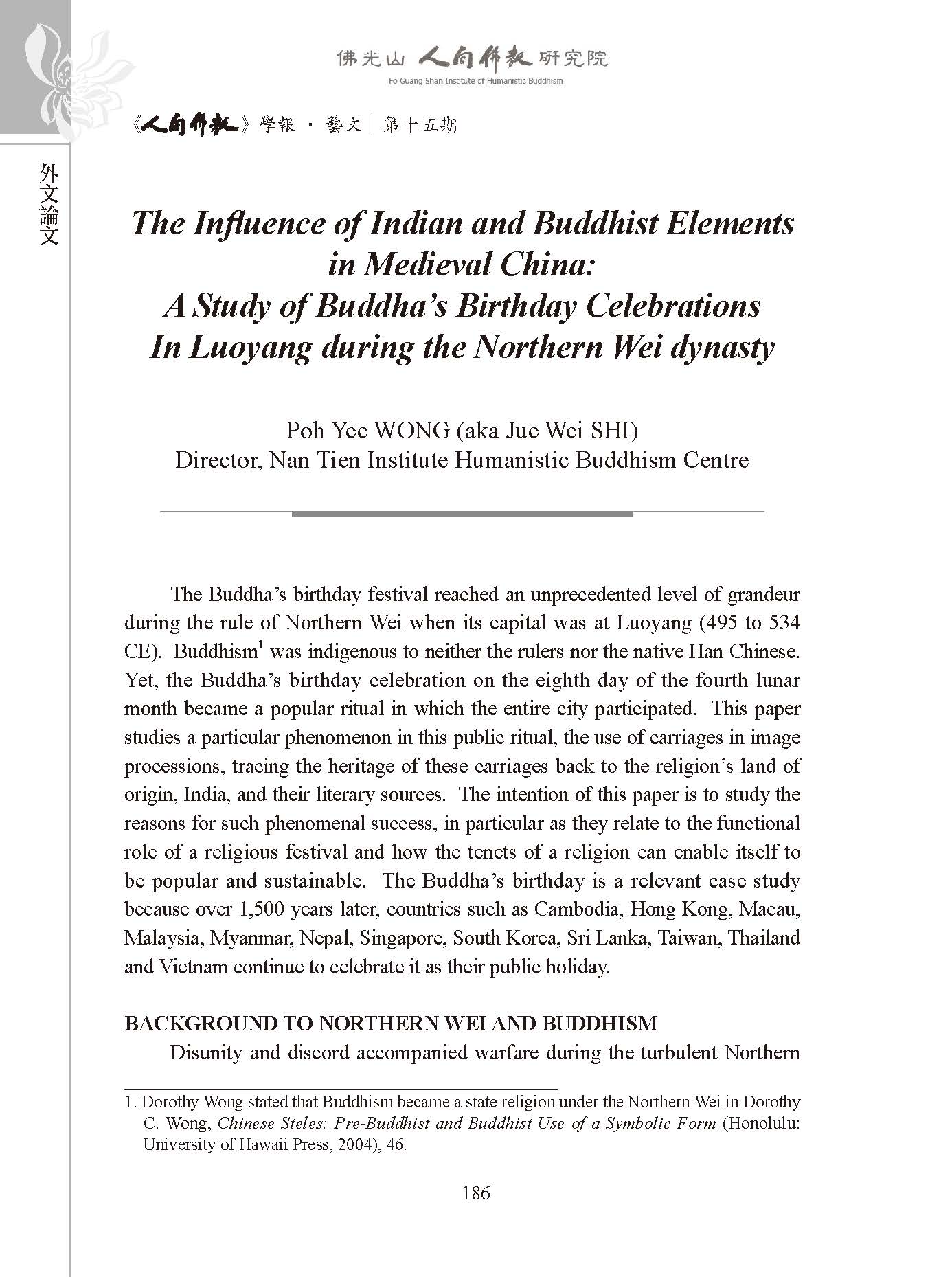
|
The Influence of Indian and Buddhist Elements in Medieval China: A Study of Buddha’s Birthday Celebrations In Luoyang during the Northern Wei dynasty
分類
論文
期別
《人間佛教學報‧藝文》第15期
作者
Ven. Juewei
單位職稱
Director, Nan Tien Institute Humanistic Buddhism Centre
其他名稱
印度與佛教元素對中國中古時期的影響——北魏洛陽佛誕節慶典研究
編者
妙凡、蔡孟樺主編
摘要
The Buddha’s birthday festival reached an unprecedented level of grandeur during the rule of Northern Wei when its capital was at Luoyang (495 to 534 CE). Buddhism was indigenous to neither the rulers nor the native Han Chinese. Yet, the Buddha’s birthday celebration on the eighth day of the fourth lunar month became a popular ritual in which the entire city participated. This paper studies a particular phenomenon in this public ritual, the use of carriages in image processions, tracing the heritage of these carriages back to the religion’s land of origin, India, and their literary sources. The intention of this paper is to study the reasons for such phenomenal success, in particular as they relate to the functional role of a religious festival and how the tenets of a religion can enable itself to be popular and sustainable. The Buddha’s birthday is a relevant case study because over 1,500 years later, countries such as Cambodia, Hong Kong, Macau, Malaysia, Myanmar, Nepal, Singapore, South Korea, Sri Lanka, Taiwan, Thailand and Vietnam continue to celebrate it as their public holiday.
引文
Ven. Juewei:〈The Influence of Indian and Buddhist Elements in Medieval China: A Study of Buddha’s Birthday Celebrations In Luoyang during the Northern Wei dynasty〉,收入妙凡、蔡孟樺主編:《人間佛教學報‧藝文》第15期,高雄:財團法人佛光山人間佛教研究院,2018年 04月,頁186-197。
全文下載











